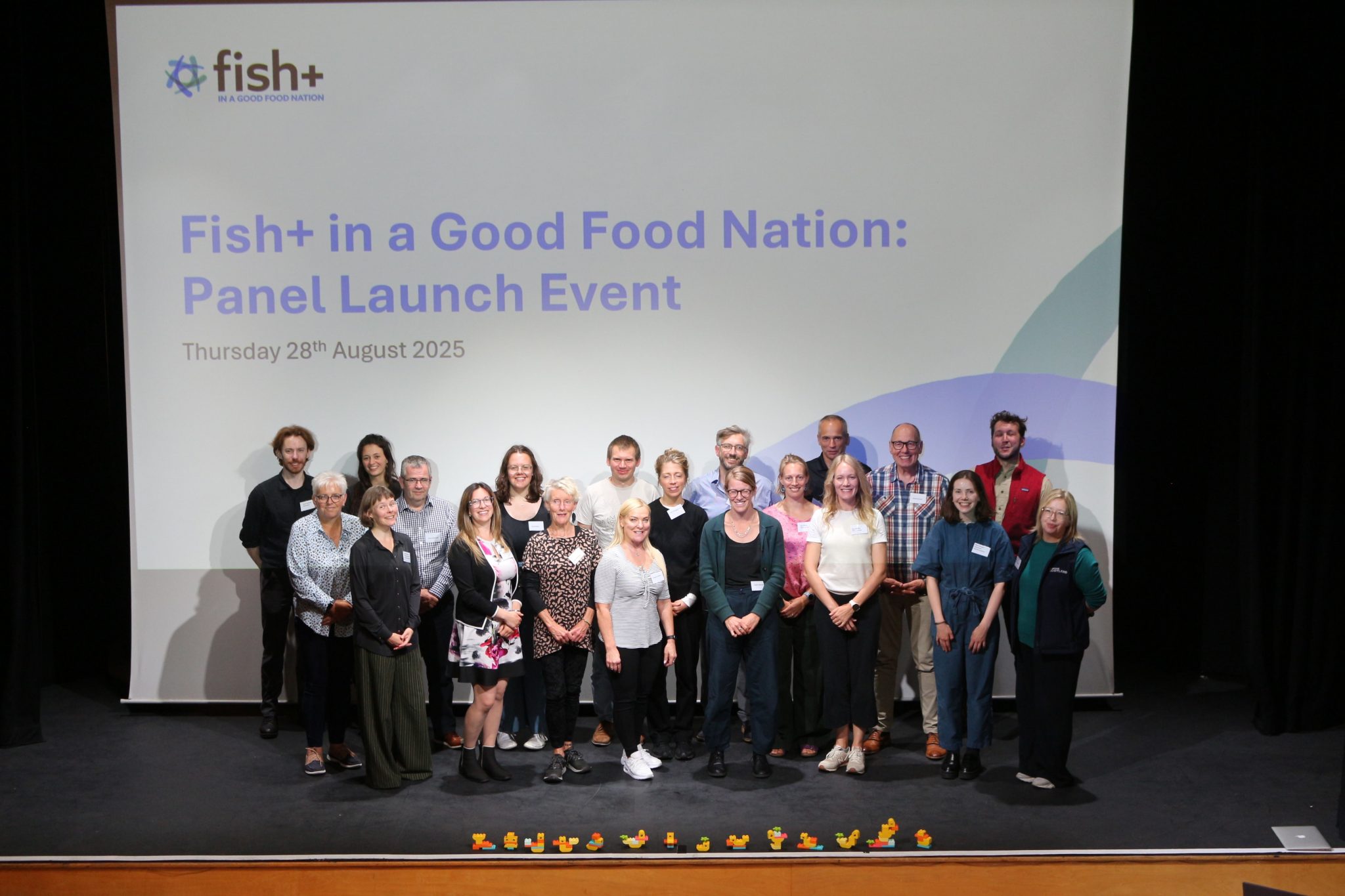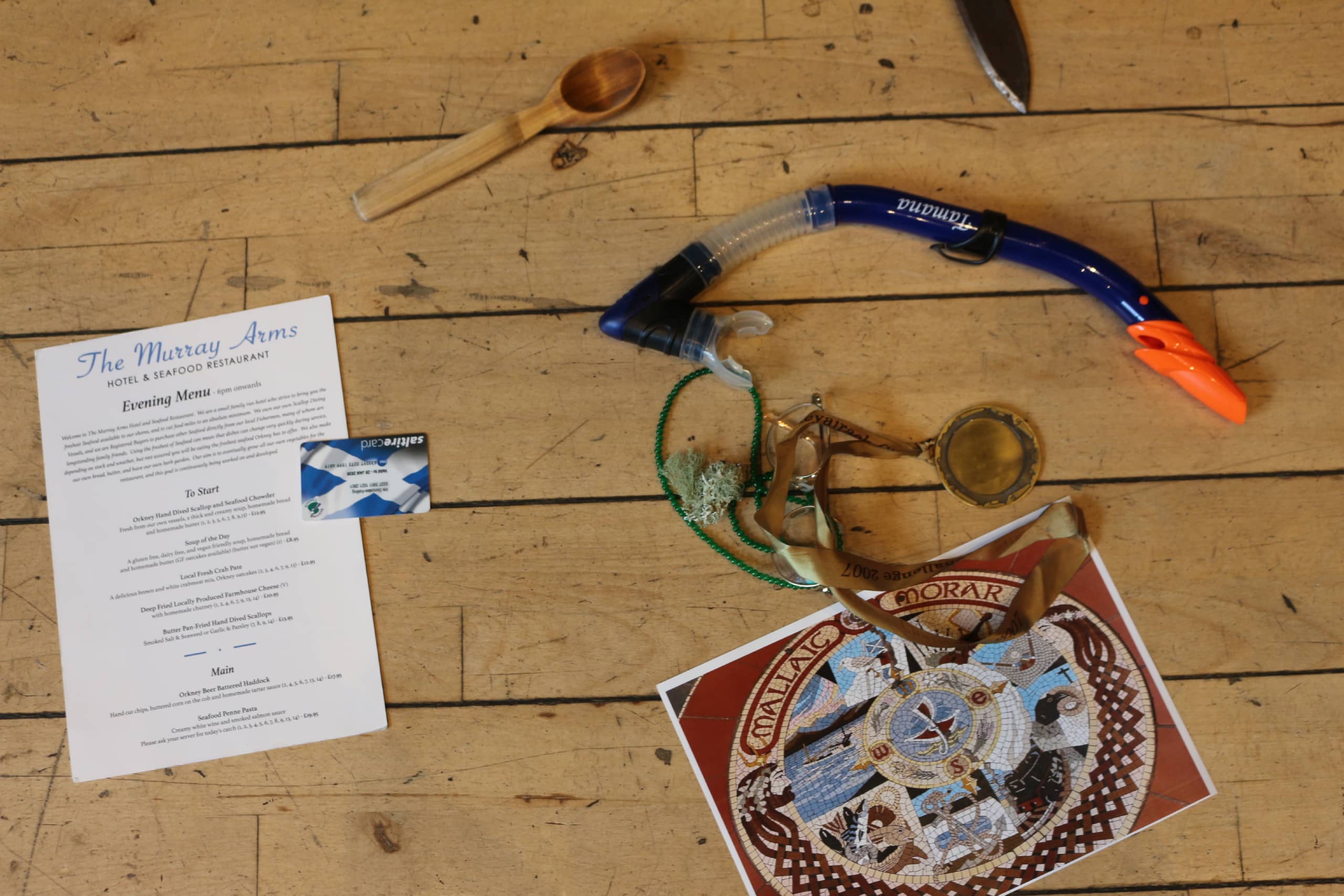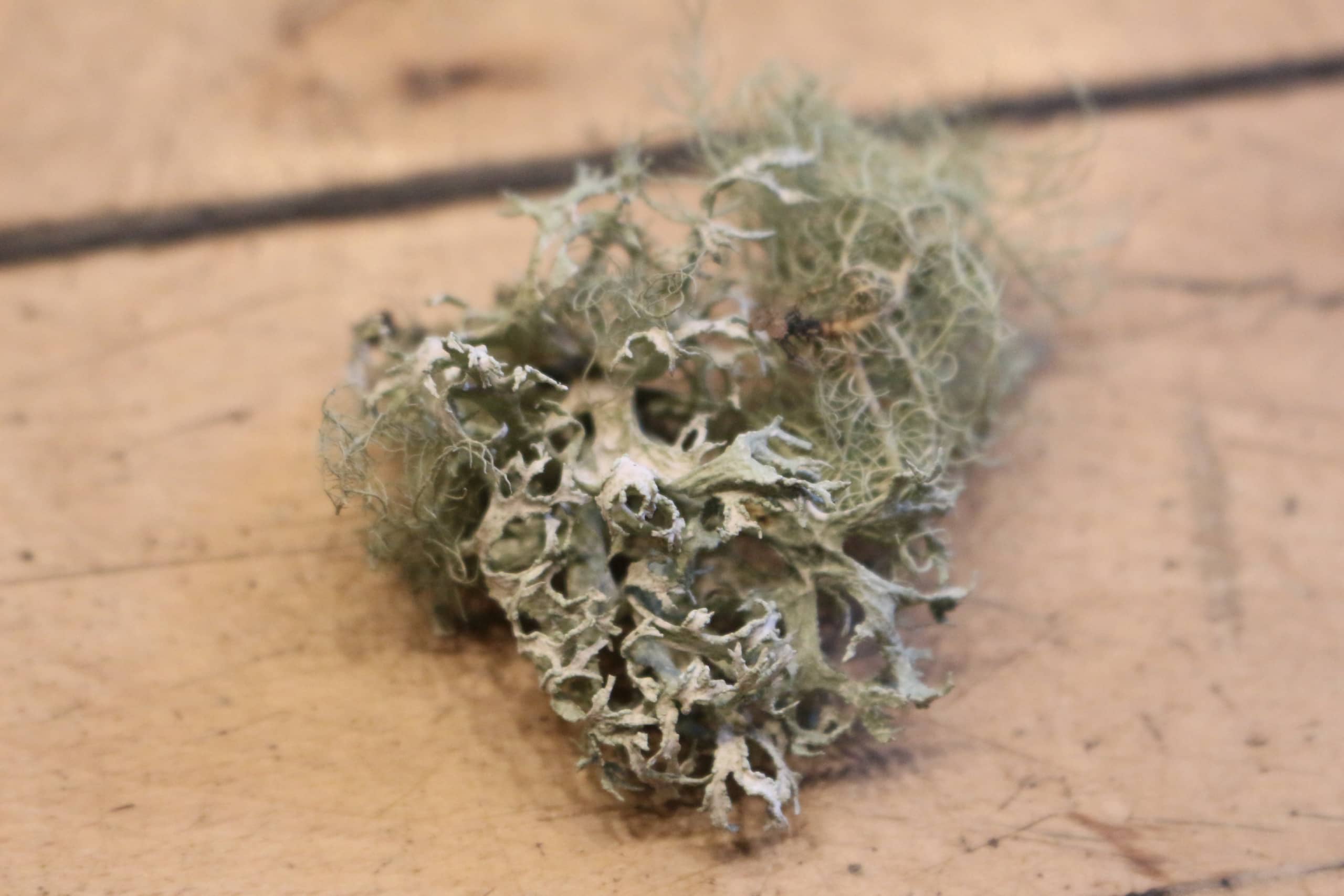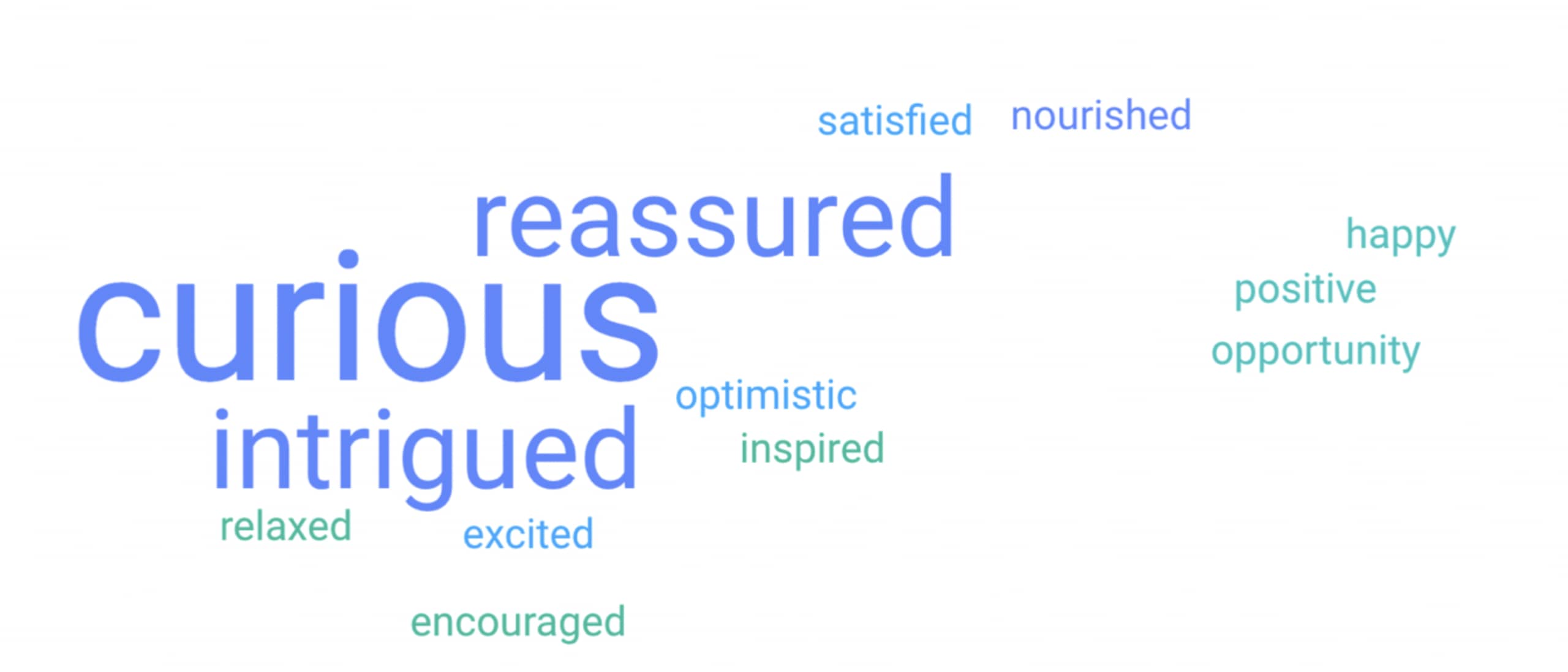Fish+ Panel Launch Event

On Thursday 28th August, the Fish+ in a Good Food Nation Panel met for the first time—bringing together fisherfolk, processors, environmental campaigners, health professionals, and more, to imagine what a Good Food Nation could look, feel and taste like.
Over the next year the panel will develop collaborations and recommendations on Fish+ under the Scottish Government’s Good Food Nation Act, where:
“people from every walk of life take pride and pleasure in, and benefit from, the food they produce, buy, cook, serve, and eat each day.”
– Scottish Government’s Good Food Nation vision
Meeting for the first time, the panellists shared why this project is important to them:
"fish+ in food security is sometimes seen as too difficult to talk about and I don’t want us to shy away from those conversations, we all have something to bring to the table – it’s a multi-faceted issue."
"I want to gain a better understanding of a healthier diet for our nation, I want to create new and better links with others, and I want to be a part of moving Scotland to being a Fish+ Good Food Nation"

Objects brought by the participants
The participants brought with them objects to symbolise what they would like to see in a Good Food Nation:
Mosaic

A mosaic represented how ‘we are not just talking about fish but also livelihoods and cultures’. The mosaic which depicts a fishing trip where all five crew members were lost, also emphasises how ‘fishing is a dangerous job’.
Song lyrics

Someone else shared the lyrics to ‘Herring’s Head’ to represent the need for ‘mindful consumption and eating from nose to tail.’
Lichen

A piece of lichen also made its way into the room. It showed how lichen is sometimes used as a bio indicator for air quality. Diversifying the indicators we use to measure goals can help us understand these goals more fully.
Oyster shell

An oyster shell was brought in to remind us how in the Firth of Forth ‘40 million oysters were once harvested annually - highlighting the loss of both ecosystems and the communities that depended on them.’
Sharing initial findings
Next, the researcher accompanying the panel shared some of the initial findings highlighting how ‘diverse views are evident across the panel, but most participants see this as an opportunity to learn, not a barrier’.
There were also some initial areas of common ground, with ‘strong agreement that Fish+ workers need more protection’ and a ‘recognition of the lack of decent fish in supermarkets.’
Discussions
To explore decision-making, panellists tested a consent-based approach designed to give everyone a voice. Using coloured cards, they discussed a proposal until it felt ‘good enough for now and safe enough to try’—a method they’ll return to throughout the project.

We also had conversations around how the same words can have different meanings and the importance of slowing conversations down to ensure we all know what we are talking about.

Summing up
The event finished off with everyone sharing one word about how they were feeling:

What next?
This is just the beginning. Over the months ahead, the panel will gather online and on-site visits, diving into Scotland’s fish+ story from different angles. Alongside them, experts will share insights on issues that matter — from fair workplaces to the links between human and environmental health, to ways of embedding meaningful participation in governance. These conversations will guide the panel as they tackle three anchor questions:
- How can we reconnect people in Scotland with fish+, making it a valued, proud and vibrant part of our lives?
- In a Wellbeing Economy that respects people and the environment, what would fish+ look, feel and taste like?
- What policies, practices and systemic changes are needed to enable long-term transformation in the fish+ sector?
We’re excited to begin this journey—and we’d love you to join us. Sign up to our mailing list to stay updated as the panel’s work unfolds.
